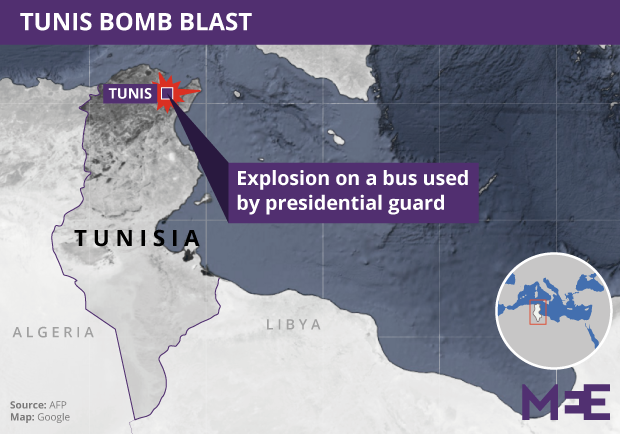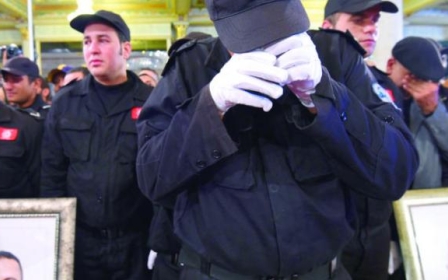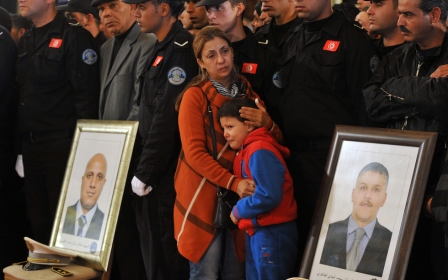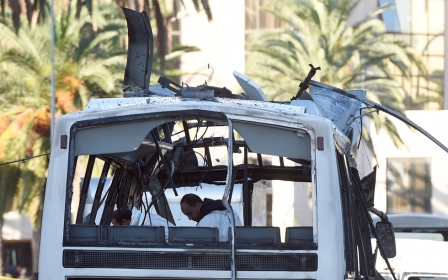3 suspects named over Tunis bus bombing
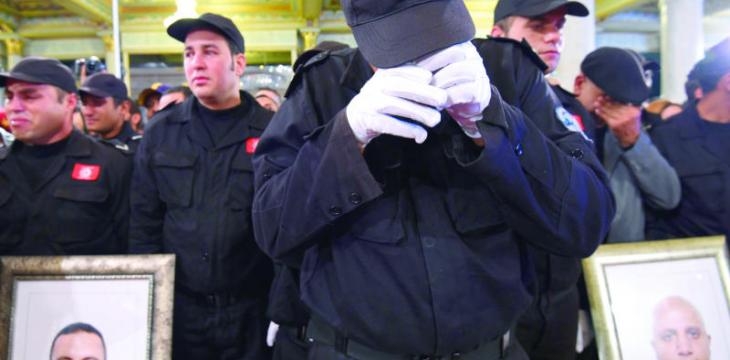
Tunisia has identified three suspects wanted over Tuesday's suicide bombing that killed 12 presidential guards and is offering a financial reward for information leading to their arrest.
The interior ministry issued a statement Friday evening identifying the men as Hassan Ben Khalifa Bouchiba, Houcine Ben Khalifa Bouchiba and Walid Ben Mohamed Ali Yousfi.
An initial probe has proven that these "terrorist elements ... [are] linked to the explosion on a bus of the presidential guard," the statement said.
The ministry also promised "an important financial reward" for "anyone providing information leading to the arrest" of the three suspects.
The Islamic State (IS) group claimed responsibility for Tuesday's suicide bombing in the centre of Tunis, and authorities have identified the bomber as 26-year-old Tunisian travelling salesman Houssam Abdelli.
Authorities detained Abdelli in August on suspicion of being tied to religious fighters, but a search of his house turned up religious books that were deemed to be harmless, and he was released without charges.
The prosecution decided that he should be kept under surveillance but it is not clear if any surveillance was carried out. The police report into the August incident only reached the prosecutor's office on Thursday, two days after the attack.
The interior ministry said Saturday it had carried out hundreds of searches and arrested dozens of people since the attack, of which "41 people suspected of belonging to terrorist organisations" were detained overnight.
IS also claimed responsibility for two attacks earlier this year at the National Bardo Museum in Tunis and on a hotel near the Mediterranean resort of Sousse that killed a total of 60 people, all but one of them foreign tourists.
Secretary of State for National Security Rafik Chelly told private Mosaique FM radio that all these attacks were planned in neighbouring Libya.
Tunisia, the cradle of the Arab Spring uprisings, has been plagued by violence since the 2011 overthrow of longtime dictator Zine El Abidine Ben Ali.
IS has exploited the chaos that spread across Libya since the 2011 revolt that toppled and killed veteran leader Muammar Gaddafi to gain a presence in the oil-rich North African state.
New MEE newsletter: Jerusalem Dispatch
Sign up to get the latest insights and analysis on Israel-Palestine, alongside Turkey Unpacked and other MEE newsletters
Middle East Eye delivers independent and unrivalled coverage and analysis of the Middle East, North Africa and beyond. To learn more about republishing this content and the associated fees, please fill out this form. More about MEE can be found here.


